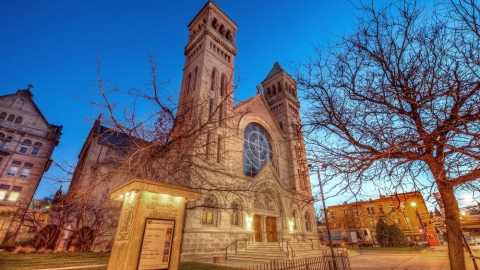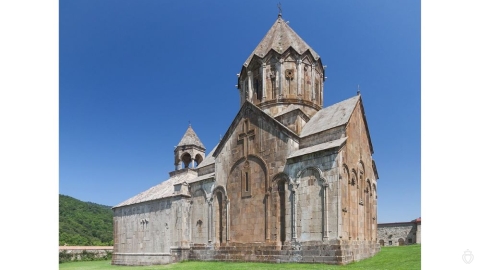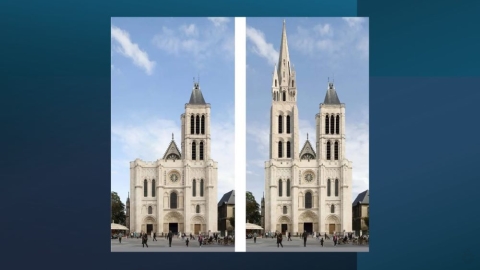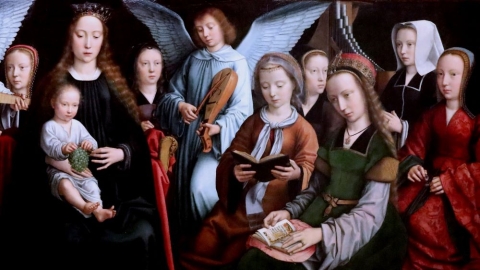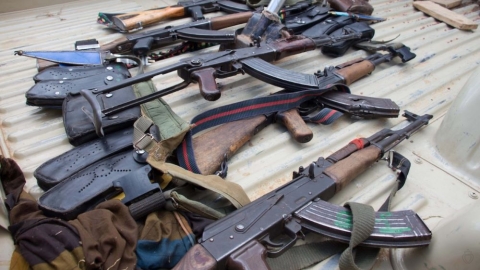Press Review: The Endless Repercussions of Fiducia Supplicans (4)
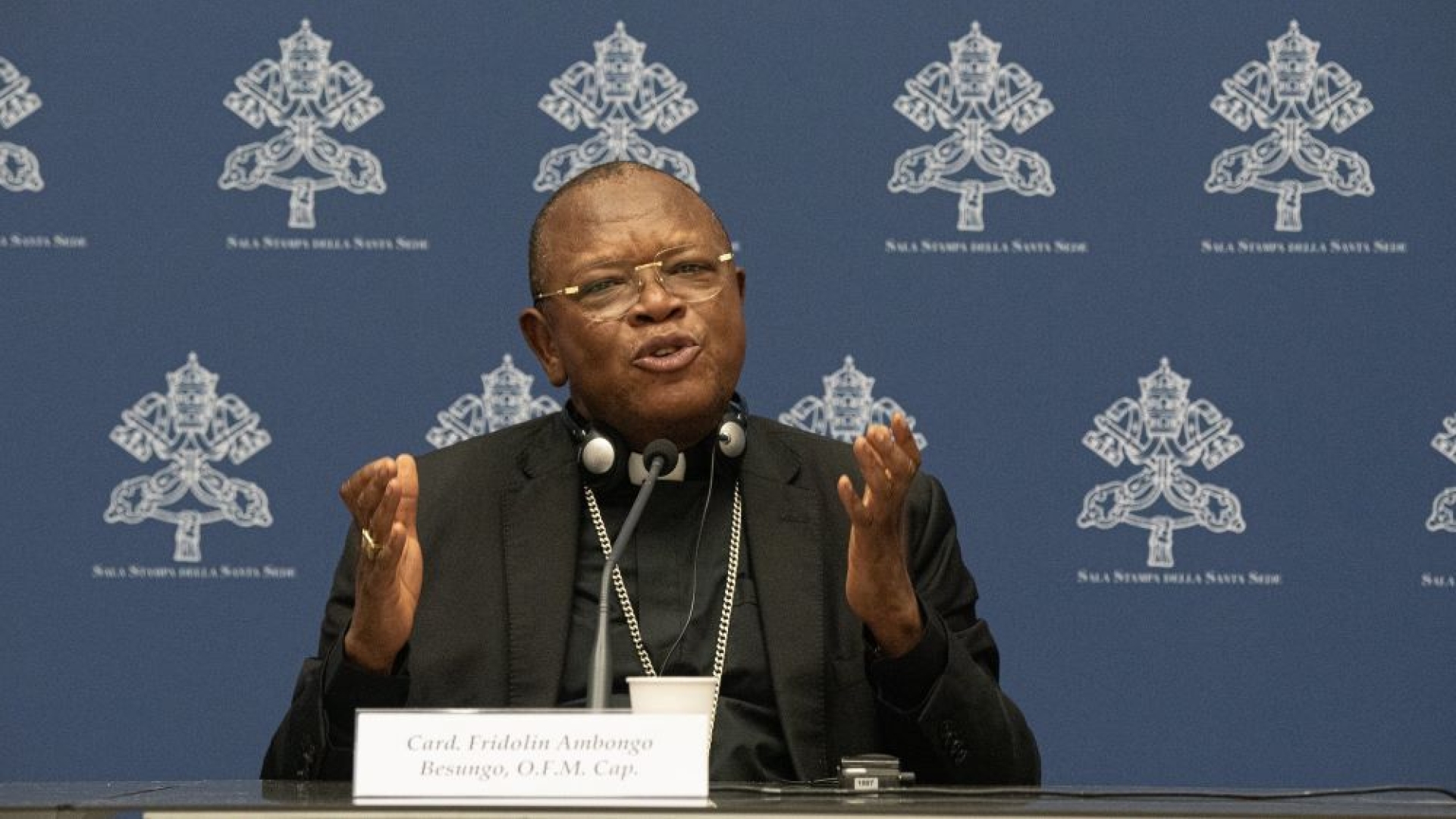
Cardinal Fridolin Ambongo
The significant opposition aroused throughout the world by the publication of Fiducia supplicans did not prevent Pope Francis from stubbornly defending this document which authorizes the blessing of couples not married in the Church or of the same sex.
The African Church and Fiducia Supplicans
What struck Vaticanists the most was undoubtedly the rejection of Fiducia supplicans by the African bishops. Certainly, the declaration of Cardinal Fridolin Ambongo, president of the Symposium of Episcopal Conferences of Africa and Madagascar (SEEAM), dated January 11, is very diplomatic. It must be said that it was written with Cardinal Fernández, under the watchful eye of Francis.
It reads: "We, African bishops, do not consider it appropriate for Africa to bless same-sex couples because, in our context, this would cause confusion and be in direct contradiction to the cultural ethos of African communities. The language of Fiducia supplicans remains too subtle to be understood by ordinary people.”
This modesty is immediately accompanied by a clear statement: “It remains very difficult to persuade others that people of the same sex living in a stable union do not claim the legitimacy of their status.” Further, as a concession to the “pastoral care” in vogue in Rome, “we will continue to reflect on the value of the general theme of this document, beyond just the blessings for couples in irregular situations, i.e., about the richness of spontaneous blessings in daily pastoral ministry.”
However, during an intervention broadcast on Le Salon Beige on January 18, the African prelate adopted a much freer and more offensive tone: “The West does not like children; it is decadent; it will disappear. We can bless homosexuals, but to convert them, not to promote deviance.”
And added: “Because they don’t like children in the West, they want to attack the basic cell of humanity which is the family. Destroy the family and you destroy society. Because they don't like children in the West, they don't believe in the family, they no longer believe in marriage: today, the West is losing its values. They don't like children, but to make the economy work, they need to look for people abroad: little by little, they will disappear. We wish them good luck in their disappearance!”
“Today, the UN system is all about pushing LGBTQ ideology through UN agencies, including UNICEF, WHO and others. In this way, they impose their culture on us through funding: and if you don't accept it, they cut the funding. But our culture in Africa is not like that!”
In La Nuova Bussola Quotidiana of January 13, Luisella Scrosati points out the weakness of an argument which only insists on the inadvisability of blessing same-sex couples for Africans, simply because of their culture. She sees in this the attempt by the Roman authorities as a “not-so-indirect effect of framing resistance to Fiducia supplicans (FS) on the basis of a kind of ecclesial federalism, rather than opposition on the unacceptable principle of blessing couples living more uxorio (together) or homosexual couples.”
“With this strategy, Cardinal Ambongo chooses to remain within the perimeter of freedom granted by Cardinal Fernández in the press release of January 4: ‘Prudence and attention to the ecclesial context and local culture could admit different ways of application, but not a total or definitive denial of this path proposed to priests.’”
The Italian journalist adds: “This appeal to African culture appears weak. If one day African culture, under the impetus of rainbow ideology [i.e. LGBTQ], were to be more ‘open,’ what would happen than?” And she remarks: “why should it only be a matter of African culture? When Ivorian faithful witness the blessing of two cohabiting homosexuals, do they see something different from what a French believer sees?”
In essence, she recalls: “The gesture of blessing, as a couple, those who live their sexuality outside of marriage or even against nature, is not acceptable in itself, because of the objective meaning of the blessing and of the couple, and not because the document supporting it uses language that is ‘too subtle for simple people to understand.’”
“That statement in the letter: ‘each bishop remaining free in his diocese,’ dangerously sets the stage for the beginning of an internal crumbling even on the African continent, and above all misses the central point of the issue, whereby no bishop, not even the Bishop of Rome, can authorize what is expressed in Fiducia supplicans.”
Other observers do not focus on these substantive questions and only focus on the political aspect of the African opposition. From this journalistic perspective, some see Cardinal Ambongo as a serious papabile for the future conclave. Thus John Allen in the January 31 Catholic Herald, quotes Franca Giansoldati from Messaggero:
“The profile of Cardinal Ambongo advances among the future papabili. He led the African blockade of the blessing of homosexual couples.” And continued: “To begin with, it marks the first time that the bishops of an entire continent have said that a Vatican edict will not be applied on their territory. Given how difficult it generally is to get an unwieldy body of bishops to agree on anything, the compact and rapid fashion in which SECAM responded is a testament to Ambongo's leadership.”
Mr. Allen, the American journalist specifies: “Ambongo found a way for the African bishops to oppose the pope, at least indirectly, but without seeming disloyal. That’s one of the most difficult needles to thread in Catholic life, and the artful fashion in which Ambongo pulled it off has turned heads. Here is how Giansoldati sums things up in her piece for Messaggero:
“’At this very delicate juncture, Ambongo has carved out a primary role, demonstrating to the College of Cardinals an indubitable capacity for mediation as well as great courage, to the point that there are those now looking at him as a possible candidate in the next conclave, in a hypothetical future, whenever it may be: A cardinal-elector from a growing continent, anchored in tradition, faithful to the principle of synodality, who knows curial mechanisms well, and with a perspective capable of facing a complicated future. In sum, all the qualities for a future black pope.”
Without going so far as to see Cardinal Ambongo as the next pope, Jonathan Liedl in the February 1 National Catholic Register considers the role that the Church in Africa is called to play in the near future, and wonders if the current Roman authorities are ready to accept it. He recalls the numerical importance of this Christianity: “The future of the Catholic Church, it’s often said, is in Africa – where vocations are flourishing, parish life is vibrant, and the total number of Catholics is poised to soon surpass Europe.”
And he details: “Home to fewer than a million Catholics in 1910, the Catholic population of Africa today stands at 265 million. Africa accounted for 19% of all Catholics in 2021, slightly behind Europe's 21%, according to the Vatican. But the two continents are headed in opposite directions: Europe's Catholic population fell by 244,000 people that year, while Africa's increased by more than 8 million.”
“And by 2050, Africa’s share of the global Catholic population is expected to rise to 32%, according to the World Christian Database. Mass attendance – a key indicator of religious commitment – also is considerably higher in African countries than the world average. For example, 94% of Nigeria's 30 million Catholics attend Mass every Sunday. By contrast, only 5% of Catholics regularly attend Mass in European countries such as Germany and France.”
But, according to the American journalist, the influence of African prelates is also doctrinal: “For instance, at the 2014 Synod on the Family, African bishops spoke up against proposals from Western prelates to liberalize Church teaching on sexuality. And at this past October’s session of the Synod on Synodality in Rome, African bishops played an important role in blocking the inclusion of the controversial term ‘LGBTQ’ from the synthesis report.”
So that: “’It’s the Congo, not the Rhine, which from now on will flow into the Tiber,' said [on January 20] the Australian Catholic commentator Scott Smith on Twitter (now called X) reworking an old adage to suggest that Africa, rather than Germany, will be a major influence on the Vatican going forward.”
Jonathan Liedl also quotes Dominican Father Anthony Akinwale, a Nigerian theologian who teaches at Augustine University near Lagos: “For the Church in Africa, the future is now. But how is the universal Church going to manage that?”
It has not been forgotten in Africa that, during the 2014 Synod on the Family, “German Cardinal Walter Kasper, a former curial head who had been dubbed by some as ‘the Pope's theologian,’ at the time, controversially said that Africans ‘should not tell us too much what we have to do’ in terms of reforming the Church’s teaching on sexuality.”
Father Akinwale tells the editor of the National Catholic Register that Cardinal Kasper's rejection of Africa's contribution to the universal Church “continues to echo” in the minds of the continent's Church leaders. “I know a few people who think that this is still the agenda,” he said.
(Sources : Le Salon Beige/La Nuova Bussola Quotidiana/Catholic Herald/National Catholic Register/Messagero/Dici n° 441 – FSSPX.Actualités)
Illustration : © Synod.va
